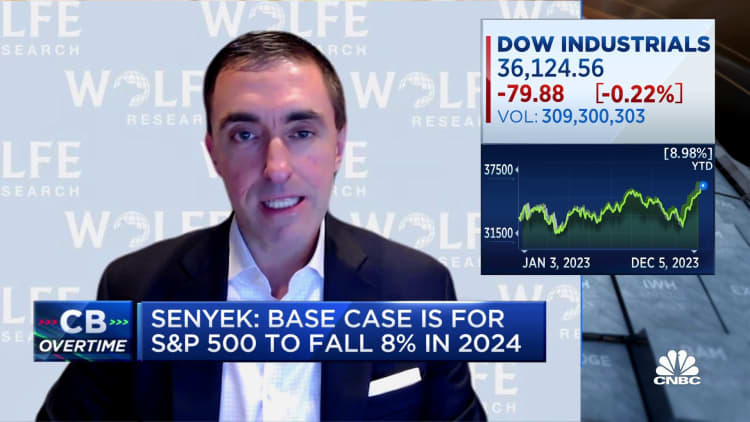‘Excess profits’ at big energy and consumer companies pushed up inflation, report claims

LONDON — Major companies in the energy and food sectors amplified inflation in 2022 by passing on greater cost increases than needed to protect margins, according to a new report.
British think tanks the Institute For Public Policy Research and Common Wealth said in a report Thursday that big firms made inflation “peak higher and remain more persistent,” particularly within the oil and gas, food production and commodities sectors.
“We argue that market power by some corporations and in some sectors – including temporary market power emerging in the aftermath of the pandemic – amplified inflation,” the report said.
The author’s analysis of financial reports from 1,350 companies listed in the U.K., U.S., Germany, Brazil and South Africa found nominal profits were on average 30% higher at the end of 2022 than at the end of 2019.
This does not necessarily mean that overall profit margins have risen, but it does mean that higher prices have been shouldered by consumers, the authors said.
“Companies with (temporary) market power seemed to be able to protect their margins or even reap ‘excess profits’, setting prices higher than would be socially and economically beneficial,” they wrote.
The report stresses that corporate profits were not the sole driver of inflation and did not cause the energy market shock following Russia’s invasion of Ukraine in February 2022. But the report authors argue that so-called “market power” has not been sufficiently captured in the current debate around the causes of inflation, particularly when compared with the impact from the labor market and rising wages.
“In an energy shock scenario, if costs were equally shared between wage earners and company owners, one would expect the rate of return to fall as firms do not increase prices fully to make up for higher costs, and wage earners do not fully keep up with inflation. But this is not what happened. A stable rate of return – for example, as seen in the UK – suggests pricing power by firms, which allowed them to increase prices to protect their margins,” it said.
It identified Shell, Exxon Mobil, Glencore and Kraft Heinz as among the firms that saw profits “far outpace” inflation.
Glencore declined to comment when contacted by CNBC. The other companies did not respond.
Inflation began a steady march higher in mid-2020 amid a host of factors including global supply chain constraints, volatile food production conditions, tight labor markets, pandemic stimulus measures and the Russia-Ukraine war.
The impact of so-called “greedflation,” or companies raising prices more than needed to protect margins from higher input costs and market movements, has been contested.
Several analysts, along with policymakers including European Central Bank President Christine Lagarde, have cited the issue as a potential contributing factor to inflation.
But what constitutes “greedflation” is not an exact science. This year, the boss of U.K. supermarket giant Tesco suggested that some food producers may be raising prices more than necessary and fueling inflation, a claim that was strongly denied by the industry.
A blog posted by economists at the Bank of England in November found “no evidence” of a rise in overall profits among companies in the U.K., where they say prices have risen alongside wages, salaries and other input costs, with a similar picture in the euro zone.
“However, companies in the oil, gas and mining sectors have bucked the trend, and there is lots of variation within sectors too – some companies have been much more profitable than others,” they wrote.
